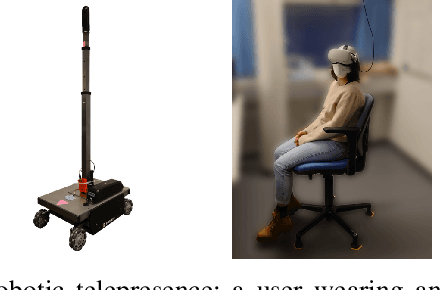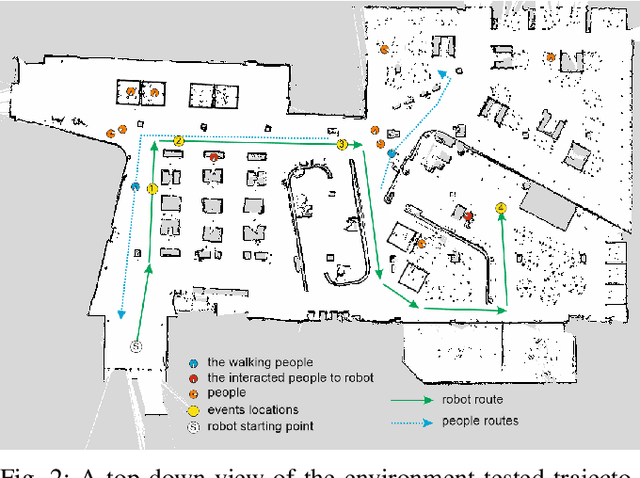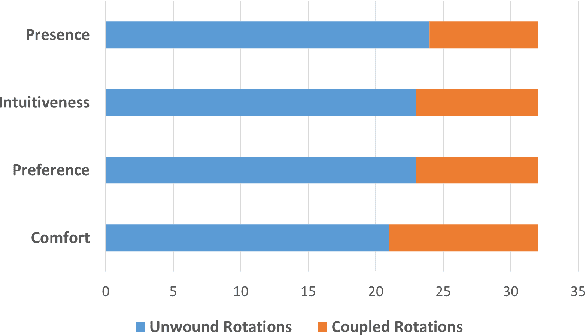A Study of Preference and Comfort for Users Immersed in a Telepresence Robot
Paper and Code
Mar 05, 2022



In this paper, we show that unwinding the rotations of a user immersed in a telepresence robot is preferred and may increase the feeling of presence or "being there". By immersive telepresence, we mean a scenario where a user wearing a head-mounted display embodies a mobile robot equipped with a 360{\deg} camera in another location, such that the user can move the robot and communicate with people around it. By unwinding the rotations, the user never perceives rotational motion through the head-mounted display while staying stationary, avoiding sensory mismatch which causes a major part of VR sickness. We performed a user study (N=32) on a Dolly mobile robot platform, mimicking an earlier similar study done in simulation. Unlike the simulated study, in this study there is no significant difference in the VR sickness suffered by the participants, or the condition they find more comfortable (unwinding or automatic rotations). However, participants still prefer the unwinding condition, and they judge it to render a stronger feeling of presence, a major piece in natural communication. We show that participants aboard a real telepresence robot perceive distances similarly suitable as in simulation, presenting further evidence on the applicability of VR as a research platform for robotics and human-robot interaction.
 Add to Chrome
Add to Chrome Add to Firefox
Add to Firefox Add to Edge
Add to Edge